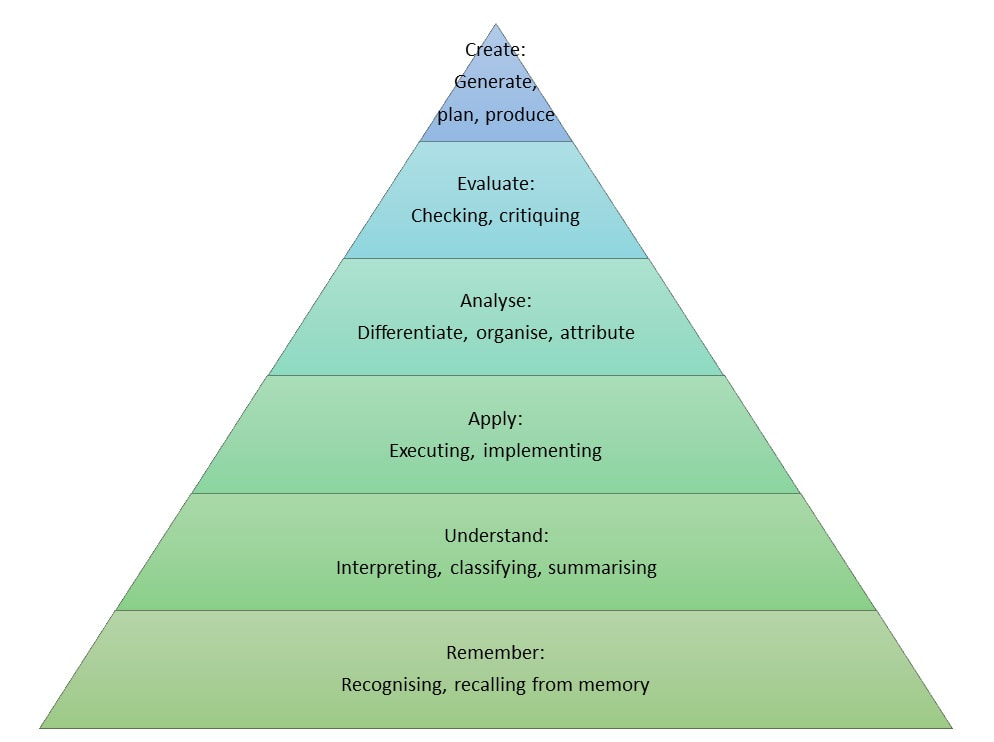Teaching philosophy
My teaching philosophy is based on Constructivism—a learning theory which suggests that humans construct knowledge and meaning from their experiences. I translate this into my teaching by adopting student-focused strategies. When planning lessons, I ask myself questions such as “what should my students be able to do after this session?” and “what kind of teaching and learning activities are required to achieve that?”.
The University of Melbourne Sessional Teachers’ Handbook (2016) references Biggs (2003) and Ramsden (2003), highlighting that students adopt, depending on the task and situation, either a surface or deep approach to learning. Those who take a surface approach to learning generally:
Whereas, students who take a deep approach to learning generally:
Sometimes in the field of music, surface learning is necessary—such as rote learning to memorise note names or finger patterns. However, as a teacher, I strive to assist my students to move to the deep learning stage. I do this in three parts:
To support these three stages and organise my teaching objectives, I refer to the 2001 revision of Bloom’s Taxonomy (which uses “action words” to describe the cognitive processes by which thinkers encounter and work with knowledge):
My teaching philosophy is based on Constructivism—a learning theory which suggests that humans construct knowledge and meaning from their experiences. I translate this into my teaching by adopting student-focused strategies. When planning lessons, I ask myself questions such as “what should my students be able to do after this session?” and “what kind of teaching and learning activities are required to achieve that?”.
The University of Melbourne Sessional Teachers’ Handbook (2016) references Biggs (2003) and Ramsden (2003), highlighting that students adopt, depending on the task and situation, either a surface or deep approach to learning. Those who take a surface approach to learning generally:
- Have uncritical acceptance of information
- Rely on rote learning
- Focus on memorising isolated facts
- Do not relate what they are learning to prior knowledge or the real word
Whereas, students who take a deep approach to learning generally:
- Critically analyse information
- Look for meaning and connections to new knowledge
- Relate theoretical ideas to everyday reality
- Try to organise content and knowledge into a coherent whole while relating evidence and argument
Sometimes in the field of music, surface learning is necessary—such as rote learning to memorise note names or finger patterns. However, as a teacher, I strive to assist my students to move to the deep learning stage. I do this in three parts:
- Subject design: focus on the processes rather than the facts
- Teaching & learning activities: seek active engagement (rather than passive listening)
- Assessment: design assessment that encourages thinking, relationships, and connections
To support these three stages and organise my teaching objectives, I refer to the 2001 revision of Bloom’s Taxonomy (which uses “action words” to describe the cognitive processes by which thinkers encounter and work with knowledge):
Why do I teach?
Professional Development through the University of Melbourne:
- Past teachers have greatly enriched my music education and my growth as a person. I am inspired to pass on their knowledge and legacies.
- I want others to experience the joy of playing music. Whether that is playing piano and singing at home or performing a concerto with an orchestra, I want to teach others so they can also have these experiences.
- I enjoy the creativity required to understand each learner’s unique skills and needs.
- I feel a sense of reward when my student achieves their goals.
Professional Development through the University of Melbourne:
- Teaching Induction ‘Contemporary Teaching Theories in Higher Education: Some Key Elements’ (14/02/2018)
- Teaching Skills for Graduate Researchers: Foundations of Good Teaching in Higher Education (09/03/2018)
- Teaching Skills for Graduate Researchers: FAQs – Managing Common Challenges in the Classroom (23/03/2018)
- Technology for Teaching and Learning (28/03/2018)
- Teaching Skills for Graduate Researchers: Strategies for Facilitating Active Learning (17-18/05/2018)
- Melbourne Teaching Certificate (completed 15/06/2018)

